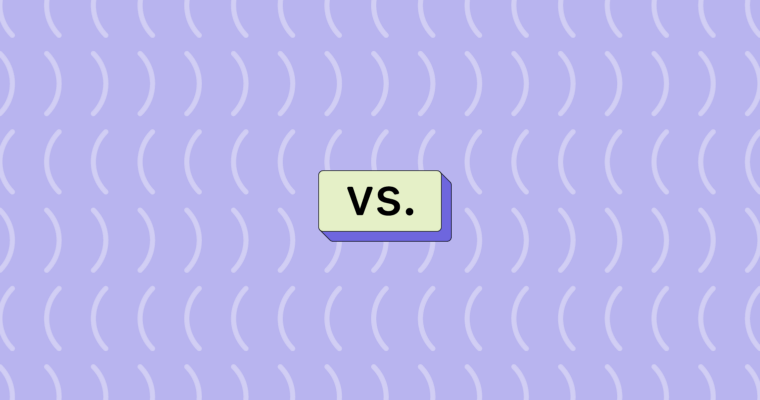
Everybody loves a compliment. Or is it a complement they love? If there is a published list of commonly confused words, complement and compliment are almost certain to appear. However, these two terms don’t have to be on your personal list of befuddling vocabulary! Here’s the breakdown.
Complement vs. compliment: What’s the difference?
Let’s clear up the complement vs. compliment confusion once and for all.
- Complement refers to something that makes something else perfect or complete, such as tomato sauce complements plain spaghetti.
- Compliment refers to saying something nice or praising, such as you look nice this evening.
Be careful because both complement and compliment can be used as either a noun or verb.
Complement definition
Complement and compliment used to share some meanings, because they derive from the same Latin root word. Complement used to mean “to compliment,” but that meaning is obsolete. Compliment has an archaic meaning also; it used to mean “gift.”
How can you define complement? If you think complement looks a little like the word complete, that can help you to remember some of its most useful meanings. A complement is something that completes or perfects.
Their shirt perfectly complements the color of their eyes.
They make a great couple; their personalities are a perfect complement to one another.
In science, the complement system refers to proteins that circulate in your blood. The name of the system derives from its function. Specific proteins match specific antibodies. In other words, the proteins complement the antibodies.
Complements also appear in mathematics. A complement is an amount added to something to complete it. In geometry, it’s the quantity that an angle or an arc is short of ninety degrees.
In economics, the definition of complementary goods is interesting. These items have little or no value on their own, but they add value to other items (think hamburger buns or ice cream cones).
Complement as a verb
As a verb, what does complement mean? In general, it means “to complete, to provide something lacking, or form a complement to.”
His piano playing complements her violin; together they make beautiful music.
Complement synonyms
- Addition is a synonym when the amount added completes a whole.
- A companion is a mate or a match.
- Completion is the state of being whole, fulfilled, or concluded.
- A counterpart is one of two parts that complement or complete one another. In the context of relationships, it often refers to a fitting match.
- Enhancements intensify or raise the value of something. This definition most closely corresponds to a complement good or service.
- Makeweights complete a desired weight on a scale. If you had eight pounds of a substance and you wanted to have ten pounds in total, the two pounds that you add to reach the correct weight are your makeweight.
Compliment definition
How do you define compliment? It’s is an expression of praise, commendation, respect, or regard. It can be a formal act or as simple as a courteous greeting or wishing someone well. Notice these examples:
“To be trusted is a greater compliment than being loved.”
—George MacDonald
“I take no leave of you, Miss Bennet. I send no compliments to your mother. You deserve no such attention. I am most seriously displeased.”
—Pride and Prejudice by Jane Austen
Compliment as a verb
The verb compliment means to praise, congratulate, or say something admiring to someone. It can also include showing kindness. Compliments may come in the form of a friendly gesture or a gift.
“Compliment people. Magnify their strengths, not their weaknesses.”
—Joyce Meyer
Praise is not the only definition of compliment. In the first example below, the phrase identifies the provider of something given at no charge. The second example uses the phrase sarcastically to refer to the source of something unwanted.
We were served free appetizers, compliments of the hotel.
I woke up with a stiff neck, compliments of that uncomfortable mattress in their guest room.
Compliment synonyms
- Adulation is an excessive form of flattery related linguistically to a Latin word for the way dogs fawn over their masters.
- Flattery refers to favorable comments about a person, but it can also refer to insincere remarks.
- Homage is respect or honor paid to a person, sometimes in a public or formal setting.
- Praise is the act of expressing favor or admiration. Singing someone’s praises is expressing high approval.
Complement vs. compliment: Tricks to remember the difference
How can you differentiate between complement and compliment? One trick is to give yourself a compliment:
Are you smart, creative, or compassionate? Tell yourself so, and then acknowledge:
I love how smart I am!
When you acknowledge your compliment, you will recall that the letter I is the difference between compliment and complement. These terms are homophones, words that sound alike but have different definitions and spellings. This trick will also help you decide how to spell each word correctly in the proper context. If you are not a fan of tooting your own horn, you could associate the I with insult. An insult is the opposite of a compliment. To remember complement, think of the word enhance when you look at the e. Enhancement is a synonym of complement.
Complementary vs. complimentary
What about the related words complimentary and complementary? Both of these words function as adjectives.
- Complimentary means expressing a compliment or favorable. It can also mean free in reference to items or services provided as a courtesy.
- Complementary refers to enhancing or emphasizing the qualities of another person or thing.
In medicine, complementary refers to alternative medicine or additional treatment that is administered alongside traditional medicine.






